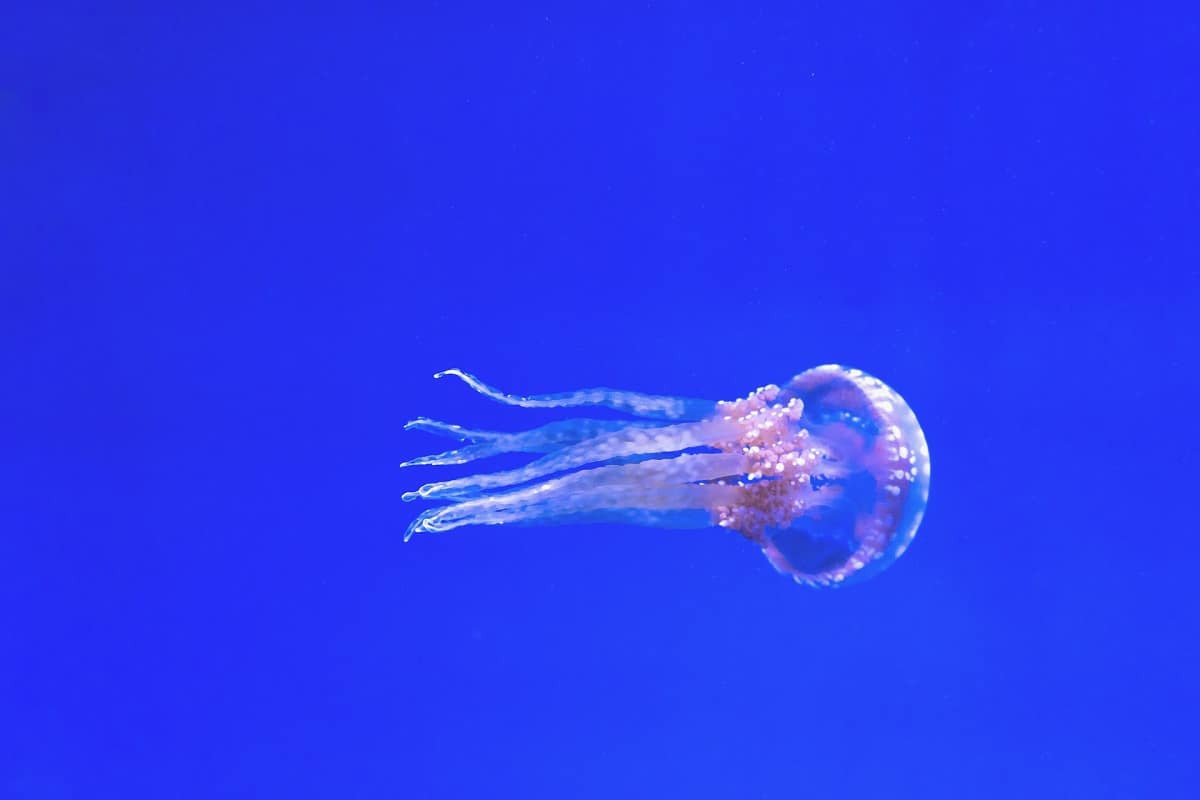
There are few places during the summer where little ones enjoy as much as on the beach. However, unlike the pool, the beach is more dangerous due to the swell of the sea and the existence of the dreaded jellyfish. They are marine animals that come to the beach dragged by the sea currents and whose bites usually cause severe pain in the skin together with a strong burning sensation.
The problem with jellyfish is that they are difficult to see and sometimes the child is not aware of them until he feels the sting. Then we will talk about everything related to jellyfish stings and how to treat them to relieve pain as much as possible.
How to avoid a jellyfish sting
If you decide to go to the beach with your child, it is important to be very careful when getting into the water and avoid the dreaded bites. One of the best options for this is to apply an anti-jellyfish sunscreen to the child's skin. This cream acts as a repellent against these marine creatures and prevents the child from receiving a sting.
This special cream can be found without any problem in the pharmacy. Thanks to the plankton extract it contains, the tentacles of the jellyfish slide on the child's skin and there is no risk of receiving any bite. In addition, these creams act as sunscreen for the child's skin.
Apart from that, you have to talk to the children so that they avoid touching or approaching them at all times. Although they are dead, it is preferable not to touch them since the mere fact of touching the skin with the aforementioned tentacles causes a dangerous stinging effect for skin as delicate as that of the smallest ones.
How to treat a jellyfish sting
If you are stung by a jellyfish, your skin becomes red and inflamed, causing itching, itching and pain. Given this, it is good to take good note of a series of tips and guidelines to follow that can help treat such a bite:
- You can apply a little salty water or saline solution in the area of the body where your child has suffered the sting of the jellyfish.
- Another quite effective option is to apply an ice pack for about 20 minutes or so.
- You must notice that there are no remains of the jellyfish's tentacles inside the skin as they could make the bite worse. To do this, you must take something similar to a credit card to sweep and eliminate any rest.
- In many cases it is advisable to apply a corticosteroid cream to relieve symptoms and reduce inflammation. If the child is having a hard time with the pain, you can give him a pain reliever.

What not to do
There are a number of home remedies that you should avoid Although most people think they are good at treating a jellyfish sting:
- Vinegar should not be applied.
- Nor should the bite be washed with soap or fresh water.
- Urine is also not useful when treating a jellyfish sting.
Symptoms that can alert that the bite is serious
As we have already mentioned above, the sting of a jellyfish will cause the area in question to become inflamed and red. However, there are children who can be quite sensitive to such a bite so the symptoms are much more serious. This is the case of suffering from muscle cramps, headaches, dizziness or vomiting. Given this, it is important to go as quickly as possible to the hospital and be treated by a professional.
Unfortunately the jellyfish stings are in the daylight and many children suffer from it. You have to be very careful and take steps to make this happen.